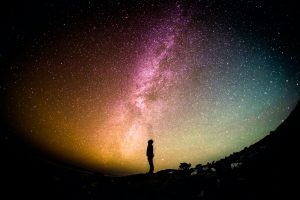Imagination and creativity are the lifeblood of the humanities. We celebrate inventive, original creation. We aim to cultivate imaginative, reflective perception. Yet the ultimate source of imagination and creation remains mysterious and elusive. Genius, as the term itself implies, was long attributable to the external inspiration of a shadowy genii or muse. Those flashes of insight that lead to an original, creative articulation earn our appreciation because they seem so un-willable; simply by taking thought or mastering techniques can’t summon the original powers of imagination on demand and create a thing so genuine as those we admire. Closer to home than geniis and muses, our own minds—perhaps the wiring particular to our brains—have also been viewed as the seat of imagination and creativity.
 Our fall symposium, co-sponsored by the BYU Humanities Center and the Faith and ImaginationInstitute, investigates the activity of imagination and creativity in spirit and matter, the mind and the brain. We welcome to BYU scholars whose work treats these questions across the disciplines of education, literary studies, cognitive studies, neuroscience, psychology, andphilosophy. Beyond intellectual understanding, the symposium considers how critical attention to these questions may unlock and expand the imaginative, creative capacities of ourselves and our students.
Our fall symposium, co-sponsored by the BYU Humanities Center and the Faith and ImaginationInstitute, investigates the activity of imagination and creativity in spirit and matter, the mind and the brain. We welcome to BYU scholars whose work treats these questions across the disciplines of education, literary studies, cognitive studies, neuroscience, psychology, andphilosophy. Beyond intellectual understanding, the symposium considers how critical attention to these questions may unlock and expand the imaginative, creative capacities of ourselves and our students.